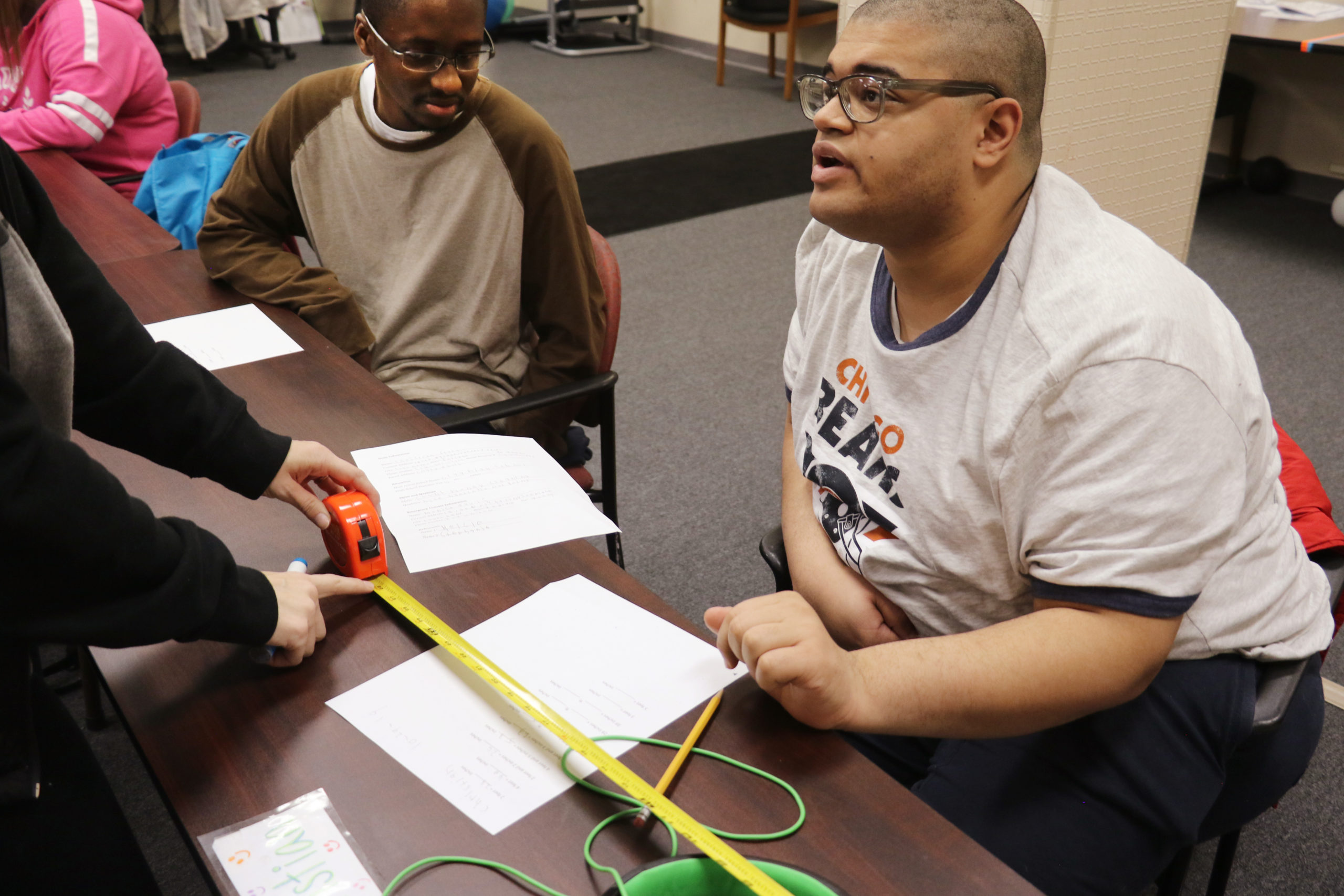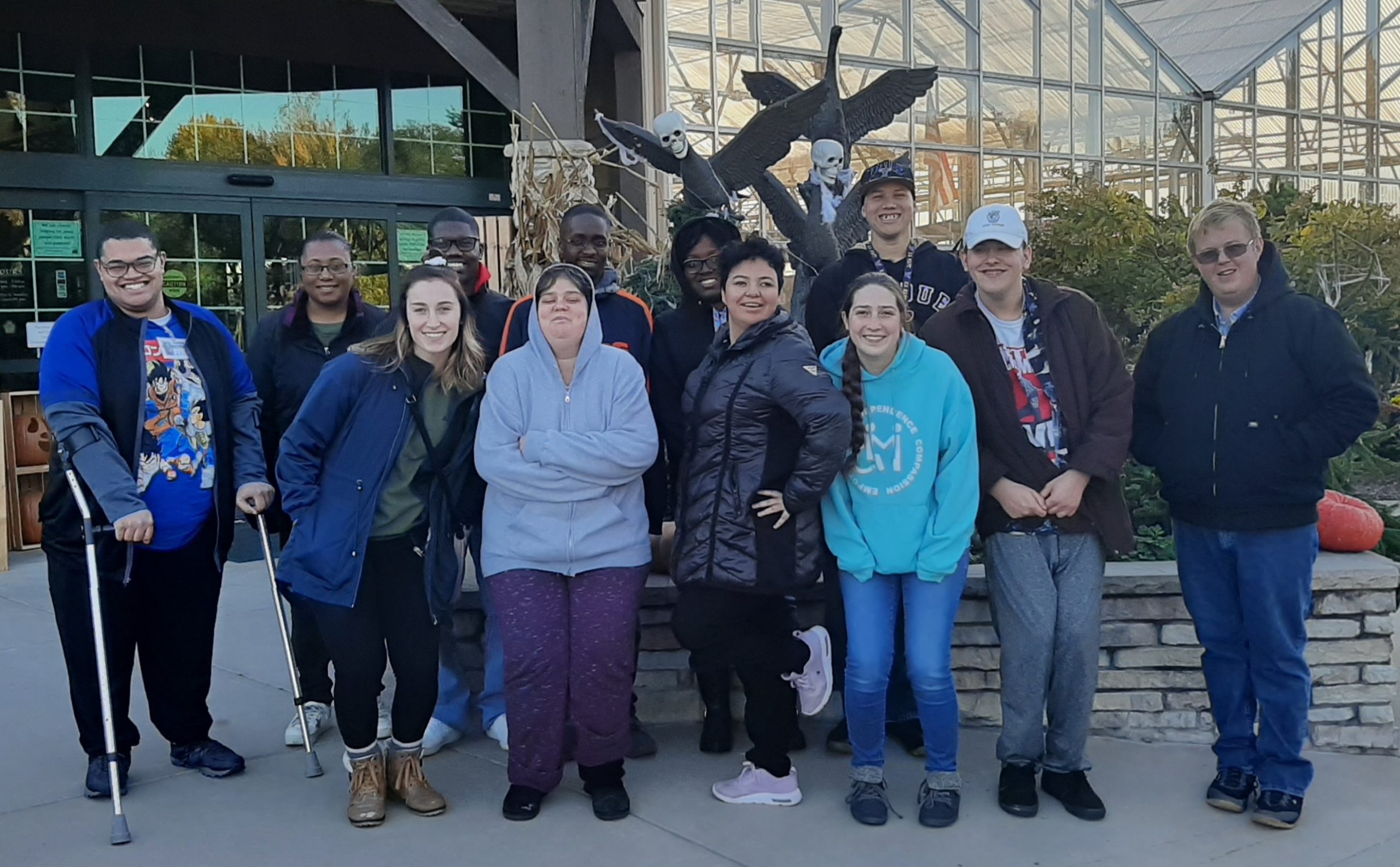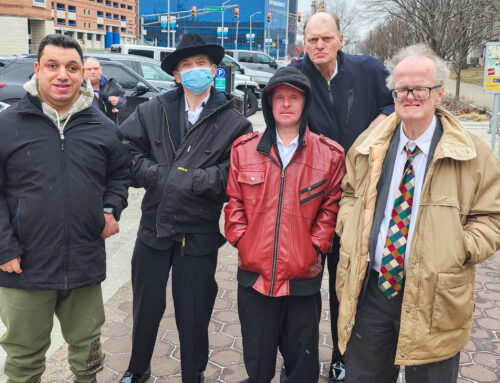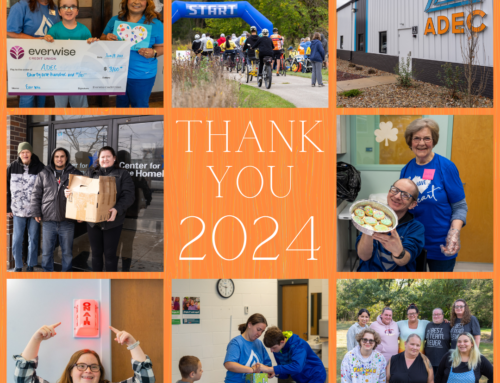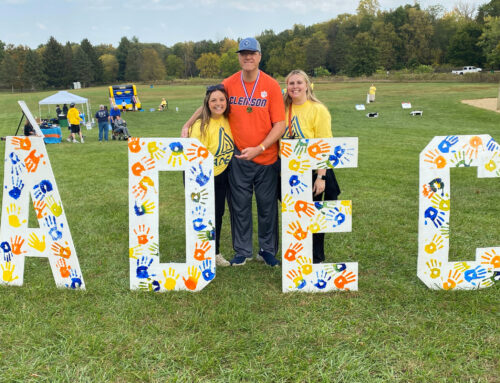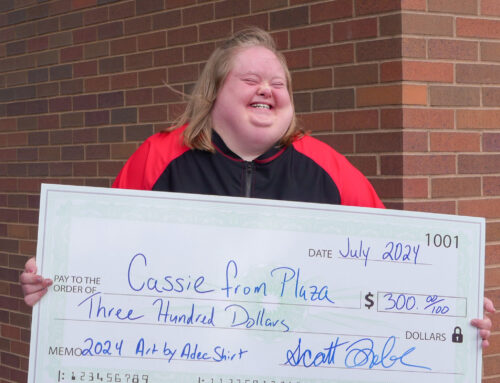When mysterious health problems began to affect her son Christian just as he was entering young adulthood, Monica Davis was at a loss for words.
“He’s had complications from his disability for his whole life,” says Monica. “This was something new.”
Today Christian is 23 years old. At age 20 he completed an internship program at his high school in South Bend. Then his new symptoms began to emerge in summer 2016.
It wasn’t immediately clear that his symptoms would be recurring, so Christian started in the Project SEARCH program at Memorial Hospital in August to continue pursuing post-high school opportunity. When his new symptoms proved to be more persistent than expected, he ultimately withdrew from the program.
Meanwhile, Monica had just accepted a job offer at ADEC as an employment consultant that same summer. Prior to ADEC, she had been serving individuals with disabilities at various organizations for 16 years.
“I was attracted to the work because I wanted to help people like my son,” Monica says.
As a professional working in the disabled care field, Christian’s new symptoms had her worried about how her son’s future might be affected by his health. After about two years of struggling with the issue on and off, they were finally able to identify and treat the problem—and soon, defying their expectations, they both became involved in a brand-new job skills training program at ADEC.
The future had begun to look a little brighter.
Foundations and evolutions
In 2014 the Workforce Innovation and Opportunity Act [WOIA] was signed into federal law, which featured enhancements for employment services for individuals with disabilities.
ADEC employment specialists were aware that young adults in Elkhart County with disabilities often found themselves caught in an awkward gap: they may have “aged out” of the public school system, but they still needed additional training to help them transition into the working world.
Many ADEC clients expressed interest in a job skills training program to fill this gap. ADEC sensed an exciting opportunity to serve the community.
In 2015, an experimental job skills program known as the Vocational Training Center was launched. It was a weekly 45-minute workshop with a loose structure and curriculum teaching competitive job skills to ADEC clients working at the ADEC Industries production facility in Elkhart.
Soon it became evident that the program required greater resources and focus to be truly effective toward its goals. The program was discontinued in 2016 as ADEC sought to make revisions and to learn from its shortcomings.
In 2018, ADEC received generous grant funding from United Way of Elkhart County to support the launch of a more structured and ambitious job skills training program. In April of that year, the Growth and Purpose program (colloquially known as GAP) was born.
Whereas the Vocational Training Center was only open to individuals who were already ADEC clients, GAP welcomed any individual from the community with a disability in the 18 to 25 age group who might be interested.
Upon launch there were only four participants in the program, but as word began to get out the class size nearly quadrupled. Soon the program was up to 14 participants—today, two of them are currently looking for work with vocational rehab, and two more are actively employed in the community. Monica was also promoted from her position as an employment consultant to an upper administrative role in the GAP program in July 2018 and has since diligently worked her way up to community employment program manager for ADEC.
“GAP started out teaching manual skills, like sorting, filing, fine motor skills and things like that,” says Monica. “Soon we realized that the true scope of job skills also encompassed a lot of other things, like how to conduct yourself professionally in an interview, how to search and apply for jobs online, proper hygiene and grooming, appropriate workplace behavior, and so on.”
“Being able to cook and clean up after yourself are vital independent living skills that also happen to be important skills in many workplaces,” she adds. “All of these things were incorporated into GAP.”
With the successful launch of GAP, ADEC continued to explore other potential enhancements to the program. Later in 2018, GAP opened further to welcome all age groups, as well as those in the community facing other barriers to employment, such as individuals with psychiatric disorders, amputees, and others.
ADEC also recently decided to change the name of the program to appeal to a wider audience, officially rebranding GAP as the ADEC Skills & Training Center in late 2019.
Skills for life, friends for a lifetime
“I like coming to the ADEC Skills & Training Center because I get to clean tables and learn about job applications and interviews,” says Christian of his experience in the program.
The ADEC Skills & Training Center is in operation five days a week. Christian attends just a few of those days, and his mother says she has seen marked improvements in his confidence and social skills.
“Christian has usually been good at socializing with people older than him, but he has struggled more in socializing with his peers,” says Monica. “Being in this program has been a great social opportunity for him. He is opening up to people his own age and making friends.”
When asked about the friends he has made there, Christian lists off the names of almost everyone in the room. Kelcie Purser—one of two skills trainers at the ADEC Skills & Training Center —says that he seems to have found a particularly special friend in a client named Tony, who is the same age as him. She has watched their friendship grow and is quick to acknowledge Tony’s outstanding character.
“Tony was not very talkative at first, but now he is a great friend to Christian,” says Kelcie, 24. “He also behaves very well, takes initiative and is very helpful in the program. I can see him doing very well at a job in the community.”
Before ADEC, Kelcie studied social work in school. She knew that she wanted to work with children or individuals with disabilities, and a year after accepting the position at ADEC she is happy with her choice.
“It can be challenging because everyone is different,” says Kelcie. “Preparing them for work or vocational rehab means learning about their hopes and dreams for the future and adapting to their needs in order to help them. If they want to improve their skill sets and be more confident and independent, we can show them how, and they can develop friendships here along the way.”
If an individual or their parents are on the fence about signing up for the program, they are welcome to visit and see the program in action themselves at their downtown Elkhart location, or even try it out for a day.
“Our goal at the ADEC Skills & Training Center is to help our clients and their parents feel comfortable as our clients transition into experiencing the dignity of living and working in the community,” says Monica. “We want to continue to grow the program and make it the best it can be.”
As for Christian’s future plans, Monica says: “He’s thinking about trying to get a job at Family Video or maybe working with the dogs at the Humane Society. He loves dogs.”

